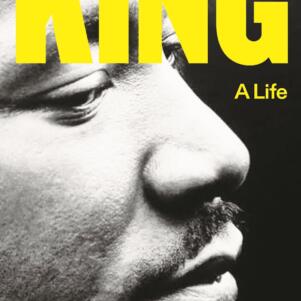Family Intervention A Goal of State Commission on Homosexual and Transgender Youth
By Matt McDonald | April 8, 2019, 11:59 EDT

A state commission has started a task force “to develop detailed recommendations and potential interventions” to try to get parents in Massachusetts to accept homosexuality and transgenderism.
“But because we may never live in a society in which all families are accepting, it is even more critical that our governmental institutions – be they schools, executive agencies, law enforcement, or anything else – be LGBTQ-competent and bias-free,” states a report by the Massachusetts Commission on Lesbian, Gay, Bisexual, Transgender, Queer, and Questioning Youth released last week.
Crime, homelessness, and health problems that homosexual and transgender young people experience starts in the home when their families don’t accept their identities, the report says, stating: “… family rejection is a root cause of many other disparities faced by LGBTQ youth …”
Education is a key theme of the commission’s recommendations. The report quotes an unnamed young person as being appalled by the ignorance the youth encountered in the youth’s own family.
“Some adults aren’t well educated. I’ve had to explain nonbinary and genderfluid to both of my parents. People should be better informed to know more,” the young person said, according to the report.
The goal of the new Family Acceptance Task Force, formed in December 2018, is to come up with “specific recommendations on addressing family acceptance and rejection” by June 30, 2020.
Making inroads with religion is one of the commission’s goals, as the commission’s report cites evidence that religious connections can prove a barrier to accepting homosexuality and transgenderism.
“One study evaluated the connection between family religious affiliation and family acceptance. While family religious association was associated with lower family acceptance, when there were high levels of both family acceptance and religious affiliation, then there was a positive association with social support. In moving forward with the Family Acceptance Task Force, it will be crucial to engage religious community leaders in the effort of promoting family support of LGBTQ youth,” the report states.
As for state government, all state employees and state contractors ought to include a question in all of their outgoing email messages asking recipients which personal pronouns they want to use, the chairman of the commission said last week.
“It’s time that those who are providing critical services to LGBTQ youth and who have a growing number of LGBTQ coworkers in their offices understand how to interact respectfully and inclusively. And this includes things like how do you ask someone their gender pronouns, for example. You can include that in the bottom of your email signature,” said Sasha Goodfriend, commission chairman, during a press conference Thursday, April 4, according to a video of the event Thursday, April 4 posted on the commission’s Facebook page. “And we know that many state employees want these tools and are ready and are eager to learn more.”
In November 2017 the commission issued a document recommending that all formal letters and business cards of state employees and contractors include preferred personal pronouns, and that all work-related meetings begin with a recitation of personal pronouns. It states: “ … agencies should instruct employees to begin the practice of including gender pronouns in introductions to clients, coworkers, and others with whom they meet. For example, someone who uses male pronouns could say at the start of a meeting, ‘I’m Jackson, I use he / him / his pronouns, and I will be your case manager’; an example from a gender-nonconforming individual might be, ‘My name is Kay, I am the departmental supervisor, and I use they / them / theirs pronouns.’”
The report released last week, titled Massachusetts Commission on LGBTQ Youth: 2020 Report and Recommendations, includes results from a 2017 Youth Risk Survey of students in Massachusetts public schools that found that 15.2 percent of students are homosexual, bisexual, transgender, or questioning.
“The commission is no longer serving a niche group, but rather a growing bloc of youth that is increasingly diverse,” Goodfriend said.
About 20 percent of all girls surveyed identified as one of those categories, as opposed to only 10 percent of boys, according to the survey.
The overall number is growing, the commission’s report says, and with rising numbers should come more attention.
“With a record number of youth identifying as LGBTQ, it is logical that our support for LGBTQ youth should be increasing in its availability and veracity in turn,” the report states.
The report describes racial disparities among homosexual and transgender youth, and the racial minorities fare worse than whites. The report uses the words “of color” 76 times in 124 pages.
A major problem is suicide. The 2017 youth survey cited by the report found that 16 percent of homosexual and transgender students had attempted to kill themselves during the past year, as opposed to 4 percent of the rest of the students.
The report blames the huge disparity on rejection by family members and others.
Religion can be a problem when it comes to suicidal feelings, the report says.
“Research has also shown that religiosity, something normally thought of as a protective factor that reduces suicide risk, actually may increase risk of suicide among sexual minority youth, highlighting the need to decrease stigma and reinforce social support,” the report states.
To address the rejection problem, the report calls for mandating what it terms “comprehensive, age-appropriate” sex education that includes same-sex sexual practices for every public school district in the state; banning conversion therapy designed to change sexual orientation or gender identity; offering Gender X as an option for state driver’s licenses instead of only male or female; increasing HIV funding; and increasing access to what it calls “critical reproductive and sexual health treatment and services.”
It also calls for improving the quality of mental health care.
“The Commission’s new data report … shows that LGBTQ youth are at increased risk for self-harm, suicidal ideation, suicide attempt, and other health risks that relate directly or indirectly to mental health. With such alarming and disproportionate risks, it is critical that mental health providers and policymakers understand what contributes to mental health problems among LGBTQ youth,” the commission’s report states.
Of the goals the report identifies, banning conversion therapy for minors seems close to happening. The Massachusetts Senate and House of Representatives have passed a bill that would do that. It went to Governor Charlie Baker on Thursday, April 4. If he signs it, it will become law shortly, because it has an emergency preamble that would make it take effect almost immediately.
Less imminent but in the pipeline: The state Legislature is considering a bill that would mandate so-called “comprehensive” sex education in every public school district in the state and a bill that would create Gender X driver’s licenses.
Decriminalizing underage sexual activity between two people who are within two years in age is also a priority identified by the report. Massachusetts Senate Bill 1014 would accomplish that.
“Criminalization of consensual sexual relationships between minors discourages use of critical health services and contributes to the school-to-prison pipeline. It also presents the opportunity for LGBTQ youth to be targeted with discriminatory use of these laws as a means of punishing stigmatized relationships between LGBTQ young people,” the report says.
The report highlights difficulties students living on the margins of human sexuality encounter.
About 16 percent of homosexual and transgender students surveyed said they had experienced sexual contact against their will, as opposed to about 6 percent of other students. About 5 percent of homosexual and transgender students said they had ever used heroin, as opposed to a little less than 1 percent of other students. About 35 percent of homosexual and transgender students said they had hurt themselves on purpose during the previous year, as opposed to about 11 percent of other students.
In the report the commission touts warm relations with several Massachusetts state agencies that it works with to promote its goals, including the Department of Elementary and Secondary Education, the Department of Higher Education, the Department of Children and Families, the Department of Youth Services, the Executive Office of Health and Human Services, the Executive Office of Public Safety, the Registry of Motor Vehicles, and the Board of Library Commissioners. The report provides recommendations for 17 other state agencies in all.
State Senator Julian Cyr (D-Provincetown), a former chairman of the commission, said the commission has made progress in changing the culture of Massachusetts.
“I also think a lot of the work the recommendations do are laying the groundwork for what’s going to come,” Cyr said during the event Thursday.
Students from Edith C. Baker, a public school in Brookline that serves kindergarten through eighth grade, attended the report release event Thursday.
The commission that issued the report was founded in 1992 by then-governor William Weld, who is now considering challenging President Donald Trump in the Republican primary in 2020.
The state appropriated $500,000 for the current fiscal year (ending June 30, 2019) for the Massachusetts Commission on Lesbian, Gay, Bisexual, Transgender, Queer, and Questioning Youth, which was founded as a governor’s commission but since 2006 has functioned as an independent agency of state government. It is the first and only such state commission in the United States.
The governor’s proposed budget has the same figure, $500,000, for the commission during fiscal year 2020 (which runs from July 1, 2020 through June 30, 2021).











